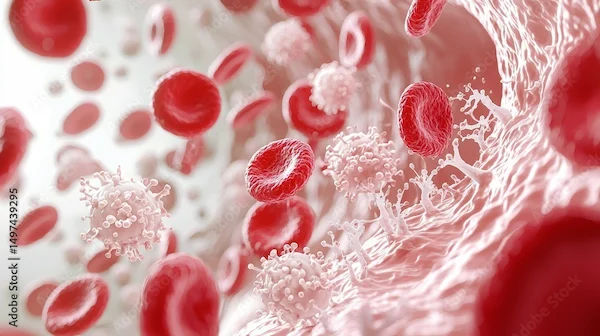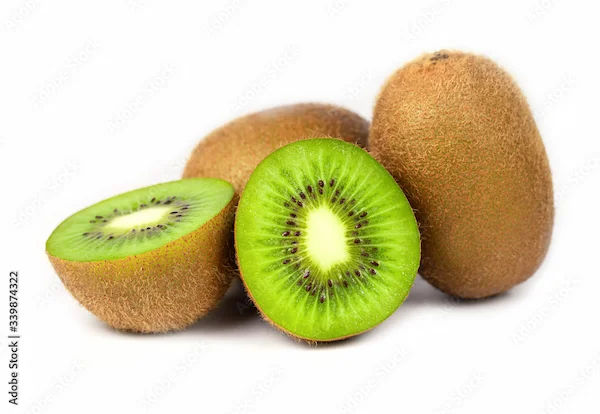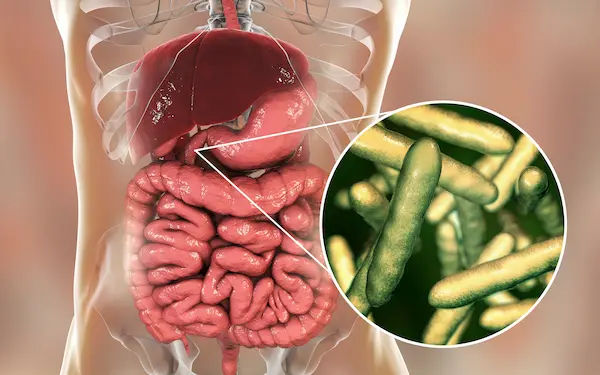10 Best Face Washes for Pimples and Acne
Top 10 acne face washes, picks with dermatologist-backed ingredients. Compare skincare products, and learn how to choose and use them safely.

Written by Dr. Dhankecha Mayank Dineshbhai
Reviewed by Dr. Md Yusuf Shareef MBBS
Last updated on 13th Jan, 2026

Introduction: Why choosing the right acne face wash matters
If you’re searching for an acne face wash that pharmacies and online stores carry, you’re not alone. Pimples and acne can appear at any age and often affect confidence and comfort. A good cleanser will not cure acne by itself, but it can remove excess oil, clear debris from pores, support other treatments, and help reduce new breakouts. Choosing the right one depends on your skin type, sensitivity level, lifestyle, and the type of acne you experience. In this guide, you’ll find ten dermatologist-style picks available in stores and online, along with clear, practical advice to help you choose and use skincare products safely and effectively.
Important note: Product availability and formulations can change. Always check ingredient lists, patch test new products, and consult a dermatologist if you’re unsure — especially if you have sensitive skin, severe acne, or you are pregnant or breastfeeding.
How to choose an acne face wash (evidence-based)?
- Salicylic acid (BHA): Helps unclog pores by dissolving excess oil, dead skin cells, and debris.
- Commonly available in concentrations of 0.5–2 per cent in cleansers. Effective for blackheads, whiteheads, and oily skin.
- Benzoyl peroxide: Reduces acne-causing bacteria and calms inflammation. Often found in leave-on gels, but appears in some cleansers. Can bleach fabric and may cause dryness.
- Alpha-hydroxy acids (AHAs), such as glycolic or lactic acid: Encourage gentle exfoliation and promote smoother skin texture.
- Sulphur and azelaic acid: Useful for oil control, bacterial balance, and improvement of uneven texture. Often found in leave-on products but sometimes included in washes.
- Niacinamide and zinc: Help reduce redness, improve the barrier, and assist with oil regulation.
- Tea tree oil: Some evidence suggests it helps mild acne, though sensitive skin may react.
- Gentle, pH-balanced bases: Non-comedogenic, fragrance-free, and sulfate-free formulas help minimise irritation.
Tip: If your skin is oily and prone to clogged pores, a salicylic acid cleanser is a strong starting point. If you are dry or sensitive, choose a gentle, fragrance-free wash and rely on leave-on actives as recommended by a dermatologist.
Consult a Top General Practitioner for Personalised Advice
10 best face washes for pimples and acne
These options are widely available online and in physical stores. Each product description highlights key benefits and suitable skin types. The focus here is on ingredients with evidence, gentle formulations, and practical use suggestions rather than brand hype.
1) A 2% Salicylic Acid Face Wash
The key features include:
- Key idea: Contains 2 per cent salicylic acid to unclog pores and reduce oil.
- Best for: Oily, acne-prone skin with blackheads and whiteheads.
- Why it’s popular: Straightforward formula targeting congestion.
- Use tip: Begin once daily and increase if tolerated.
2) High-strength Salicylic Acid Face Wash
The key features include:
- Key idea: High-strength salicylic acid with a gentle surfactant system.
- Best for: Combination-to-oily skin that clogs easily.
- Why it’s popular: Minimal fragrance and evidence-based positioning.
- Use tip: Follow with a non-comedogenic moisturiser to prevent dryness.
3) Salicylic acid-based Oil-Free Acne Wash
The key features include:
- Key idea: Salicylic acid-based formula that helps clear pores.
- Best for: Teens and adults with oily skin and frequent breakouts.
- Why it’s popular: A trusted, long-established product category.
- Use tip: Alternate with a gentle cleanser if irritation occurs.
4) Purifying Foaming Gel
The key features include:
- Key idea: Purifies while balancing oil production, often containing soothing elements such as zinc derivatives.
- Best for: Oily or sensitive skin requiring daily cleansing.
- Why it’s popular: Barrier-friendly formula with mild surfactants.
- Use tip: Ideal as a morning cleanser when using stronger actives in the evening.
5) Sébium Gel Moussant
The key features include:
- Key idea: Helps reduce excess shine without stripping the barrier.
- Best for: Oily or combination skin with midday greasiness.
- Why it’s popular: Gentle lather and skin-friendly pH.
- Use tip: Pairs well with topical acne treatments.
6) A Cleansing Gel
The key features include:
- Key idea: Targets oiliness and impurities while remaining suitable for easily irritated skin.
- Best for: Combination/oily skin types sensitive to strong washes.
- Why it’s popular: Lightweight gel texture supports prescription acne regimens.
- Use tip: Works well alongside nightly retinoids.
7) Face Cleansing Foam
The key features include:
- Key idea: pH 5.5 foam that protects the skin barrier while cleansing.
- Best for: Sensitive and acne-prone skin prone to tightness.
- Why it’s popular: Barrier-safe approach without harsh drying.
- Use tip: Suitable for beginners or those sensitive to strong actives.
8) Foaming Face Wash
The key features include:
- Key idea: Salicylic acid-based foam is commonly suggested for comedonal acne.
- Best for: Oily skin with stubborn blackheads and whiteheads.
- Why it’s popular: Focus on pore-clearing without heavy fragrance.
- Use tip: Introduce gradually and moisturise regularly.
9) Salicylic acid Foaming Face Wash
The key features include:
Key idea: Features salicylic acid within a gentle foaming base.
Best for: Oily or combination skin needing mild exfoliation.
Why it’s popular: Effective yet less stripping than many scrubs.
Use tip: Avoid mixing with additional exfoliants early on.
10) Daily use Salicylic Acid Face Wash
The key features include:
- Key idea: Daily-use salicylic acid cleanser for mild-to-moderate acne.
- Best for: Visible pores and recurrent breakouts.
- Why it’s popular: Widely available and suitable for everyday use.
- Use tip: Apply sunscreen daily when using exfoliating cleansers.
How to use an acne cleanser correctly?
The tips to use acne cleanser correctly include:
- Go slow: Begin once daily for a week and increase if tolerated.
- Be gentle: Use lukewarm water and your fingertips only.
- Rinse thoroughly: Residue can irritate.
- Moisturise: Even oily skin benefits from hydration.
- Introduce leave-on actives carefully: Add only one new treatment at a time.
- Use sunscreen daily: Acne treatments often increase sun sensitivity.
- Monitor irritation: Reduce use if peeling or redness develops.
Best Skincare products to pair with acne face wash
Skincare products which can be paired include:
- For clogged pores: Salicylic acid cleanser plus adapalene at night.
- For inflamed pimples: Gentle cleanser plus benzoyl peroxide as directed.
- For marks and uneven tone: Gentle wash with azelaic acid or niacinamide.
- For sensitive skin: Fragrance-free cleanser with minimal actives.
When to see a dermatologist?
See a dermatologist when:
- Acne is painful, cystic, or scarring.
- No improvement after 8–12 weeks of OTC care.
- You are unsure how to combine treatments safely.
- You are pregnant or breastfeeding and need safe options.
- You suspect allergic reactions or severe irritation.
Quick buyer checklist for an acne face wash
The buyer checklist should contain the following things:
- Contains evidence-backed ingredients.
- Non-comedogenic and fragrance-free for sensitive skin.
- pH-balanced and sulfate-free if you get easily irritated.
- Matches your skin type.
- Works with your other skincare products.
Conclusion
Choosing the right acne face wash can make a meaningful difference in how your skin feels and behaves each day. While cleansers cannot cure acne alone, the correct formula can support treatments, help prevent new breakouts, and maintain a healthy barrier. Paying attention to ingredients, your skin type, and the products you already use ensures better results with fewer side effects. If acne becomes painful, persistent, or affects your confidence, professional advice is essential. With consistent care and well-chosen products, achieving clearer and calmer skin is a realistic goal.
Consult a Top General Practitioner for Personalised Advice
Consult a Top General Practitioner for Personalised Advice

Dr. K Vijaya Kumar
General Practitioner
5 Years • MBBS, Fellowship in Diabetes Mellitus
Mottur
PADMAVATHI CLINIC, Mottur

Dr Haripriya S G
Family Physician
22 Years • MBBS, PGD (Family Medicine)
Bengaluru
Apollo Clinic, JP nagar, Bengaluru

Dr. Anindita Mondal
General Physician/ Internal Medicine Specialist
8 Years • MBBS
Kolkata
VDC Clinic, Kolkata

Dr. Ishita Mandal
General Surgeon
7 Years • MBBS(hons.), MS(general surgery), General and laparoscopic surgeon
Kolkata
VDC Clinic, Kolkata
Dr. Vinod Babu Sugumaran
General Practitioner
5 Years • MBBS, MD (Biochemistry),Ph D in Biochemistry, CC in Evidence based Diabetes
Villianur
Sugam Telecliniq, Villianur
Consult a Top General Practitioner for Personalised Advice

Dr. K Vijaya Kumar
General Practitioner
5 Years • MBBS, Fellowship in Diabetes Mellitus
Mottur
PADMAVATHI CLINIC, Mottur

Dr Haripriya S G
Family Physician
22 Years • MBBS, PGD (Family Medicine)
Bengaluru
Apollo Clinic, JP nagar, Bengaluru

Dr. Anindita Mondal
General Physician/ Internal Medicine Specialist
8 Years • MBBS
Kolkata
VDC Clinic, Kolkata

Dr. Ishita Mandal
General Surgeon
7 Years • MBBS(hons.), MS(general surgery), General and laparoscopic surgeon
Kolkata
VDC Clinic, Kolkata
Dr. Vinod Babu Sugumaran
General Practitioner
5 Years • MBBS, MD (Biochemistry),Ph D in Biochemistry, CC in Evidence based Diabetes
Villianur
Sugam Telecliniq, Villianur
More articles from General Medical Consultation
Frequently Asked Questions
Which is the best acne face wash?
There is no single best option. Oily or clogged skin often responds well to salicylic acid cleansers. Sensitive skin types may prefer a gentle, pH-balanced wash.
Can teens use salicylic acid cleansers?
Yes, many teens benefit. Begin slowly, moisturise, and increase frequency only if the skin handles it well.
Is a face wash enough to clear acne?
Usually not. A cleanser helps remove oil and debris, but leave-on treatments and sun protection play major roles.
Can I use salicylic acid with benzoyl peroxide or retinoids?
Often yes, but introduce gradually to avoid irritation.
Are tea tree or herbal cleansers effective?
Not all, some may help mild acne. Patch testing is recommended, especially for sensitive skin.



_3.webp)
